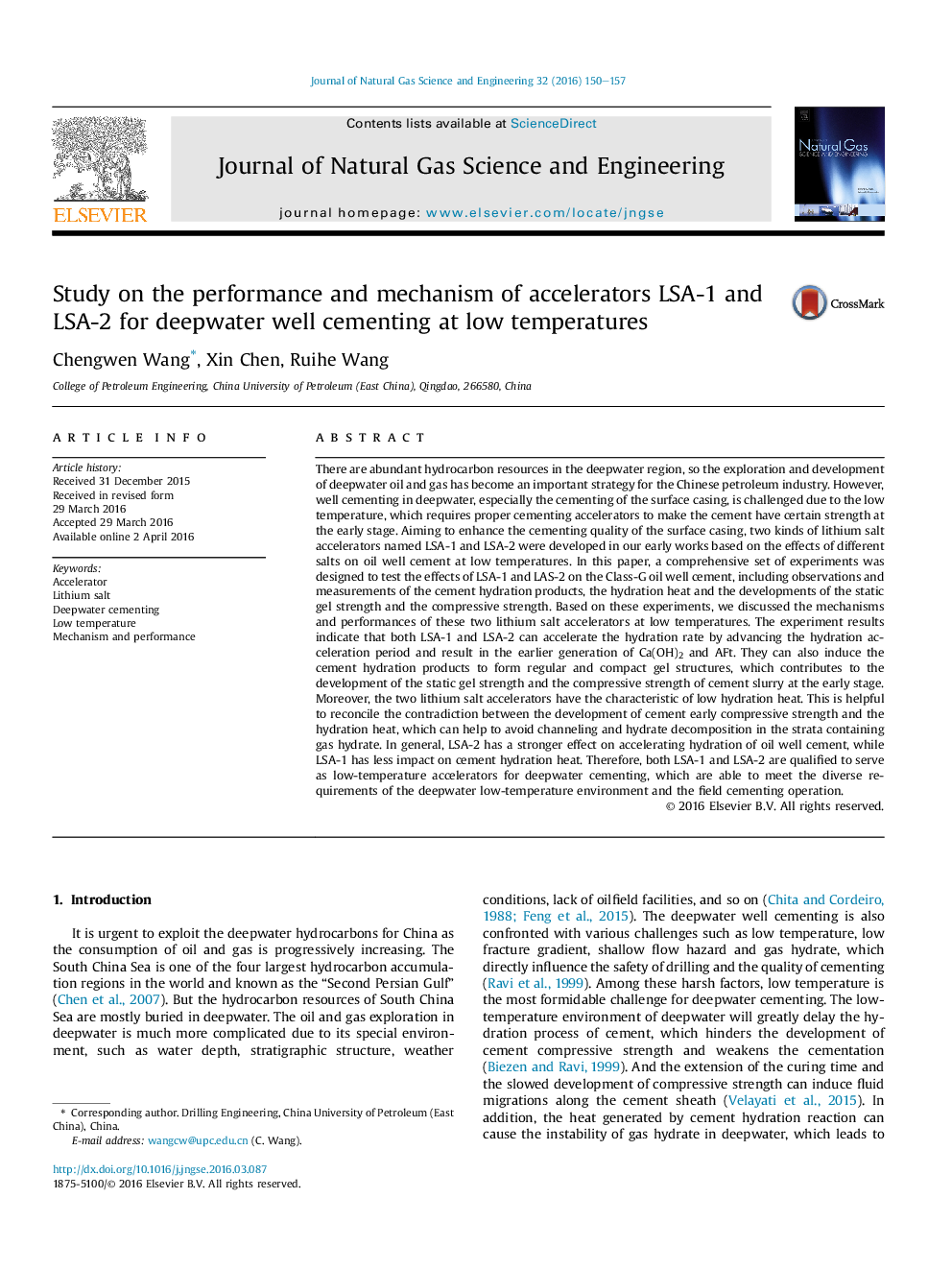| Article ID | Journal | Published Year | Pages | File Type |
|---|---|---|---|---|
| 1757219 | Journal of Natural Gas Science and Engineering | 2016 | 8 Pages |
•Lithium salt accelerators have significant accelerating effects and excellent performances on cement at low temperatures.•Lithium salt accelerators advance the ending of induction period and contribute to the compact spatial networks.•Lithium salt accelerators possess the characteristic of low hydration heat and enhance the cement static gel strength.
There are abundant hydrocarbon resources in the deepwater region, so the exploration and development of deepwater oil and gas has become an important strategy for the Chinese petroleum industry. However, well cementing in deepwater, especially the cementing of the surface casing, is challenged due to the low temperature, which requires proper cementing accelerators to make the cement have certain strength at the early stage. Aiming to enhance the cementing quality of the surface casing, two kinds of lithium salt accelerators named LSA-1 and LSA-2 were developed in our early works based on the effects of different salts on oil well cement at low temperatures. In this paper, a comprehensive set of experiments was designed to test the effects of LSA-1 and LAS-2 on the Class-G oil well cement, including observations and measurements of the cement hydration products, the hydration heat and the developments of the static gel strength and the compressive strength. Based on these experiments, we discussed the mechanisms and performances of these two lithium salt accelerators at low temperatures. The experiment results indicate that both LSA-1 and LSA-2 can accelerate the hydration rate by advancing the hydration acceleration period and result in the earlier generation of Ca(OH)2 and AFt. They can also induce the cement hydration products to form regular and compact gel structures, which contributes to the development of the static gel strength and the compressive strength of cement slurry at the early stage. Moreover, the two lithium salt accelerators have the characteristic of low hydration heat. This is helpful to reconcile the contradiction between the development of cement early compressive strength and the hydration heat, which can help to avoid channeling and hydrate decomposition in the strata containing gas hydrate. In general, LSA-2 has a stronger effect on accelerating hydration of oil well cement, while LSA-1 has less impact on cement hydration heat. Therefore, both LSA-1 and LSA-2 are qualified to serve as low-temperature accelerators for deepwater cementing, which are able to meet the diverse requirements of the deepwater low-temperature environment and the field cementing operation.
